Electric car battery life: how to preserve your battery
Here's how to preserve your electric car’s battery life and how much a replacement will cost if you need one
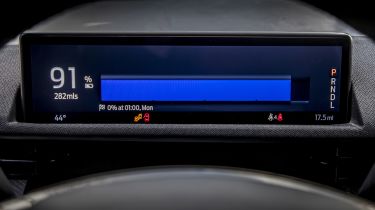
Electric car battery life is one of the main concerns for those interested in buying an EV. Most electric cars use lithium-ion batteries – the same as the ones in your laptop or smartphone – and these batteries tend to lose some of their capacity over the course of their lives. However, while your phone’s battery and the one in your electric car have many similarities, there are significant differences which affect degradation.
Charging or draining a lithium-ion battery from 0-100% is known as a charging cycle, which is the main factor that causes batteries to degrade. Battery degradation is less crucial in a phone, as most people buy a new one every two or three years, or get a new battery for their phone after a while.
Of course, a car needs to last much longer than that, so most manufacturers fit electric cars and vans with a built-in buffer preventing the batteries from being drained all the way to 0% or completely charged up to 100%. This reduces the amount of full charging cycles that take place, minimising the long-term degradation of the battery and maintaining as many available miles as possible.
On top of this, many carmakers provide a standard eight-year or 100,000-mile battery warranty with their electric vehicles, which also covers a certain amount of battery degradation during this time.
While these factors provide a certain level of security for electric-car buyers, there are additional steps you can take to minimise any battery degradation and maximise your EV’s battery life. After all, a battery replacement for an electric car can be costly – typically in the region of several thousands of pounds – so it's essential to follow best practices and preserve your electric car’s battery health.
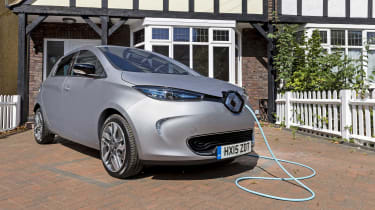
Seven easy ways to prolong your electric car’s battery life
- Keep the battery between 20% and 80% charged at all times
- Only charge your car to 100% when absolutely necessary (for longer trips etc.)
- Minimise exposure to extreme temperatures
- Allow the battery to cool down before recharging
- Limit your use of rapid chargers
- Don’t leave your car fully charged for long periods
- Stick to your car’s indicated service and maintenance schedule
Should I charge my electric car every night?
You should avoid charging your electric car’s batteries every night. Frequent charging cycles from 0% to 100% can cause your vehicle’s battery to degrade, especially if you’re using rapid or ultra-rapid chargers often, as these refill the battery at a much faster rate.
If you leave your car charging overnight, using a charger that top ups the battery at a slower rate like most home wallboxes or on-street chargers are the best option, as this will reduce the chances of an entire charge cycle being completed. Most electric vehicles include an on-board buffer that stops the battery from topping up above 80% to protect against degradation, but not all electric cars include this feature.
For best practice, try topping up your battery to no more than 80% just to be safe, or simply add enough charge for the next day’s driving and remove the charger. This will help maintain your car's battery health and maximise its available mileage.
How long can an electric car sit without charging?
You should never leave your electric car parked for long periods with 0% charge, as this can cause the vehicle's battery to degrade. Electric cars lose small amounts of charge when parked and not being driven, so it’s essential to check in on your vehicle’s charge level and ensure it remains between 20% and 80%. An electric-car battery replacement can be an expensive procedure, so it's important to look after it and minimise degradation if you want to save money.
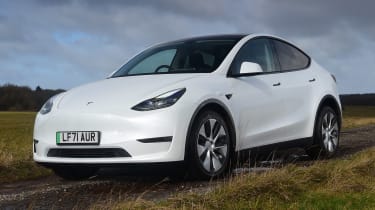
How much does a replacement electric car battery cost?
There'll be slight variations from car to car depending on the age and condition of the old battery, but the price of a replacement electric car battery in 2021 was estimated to be around £87 per kWh – and it’s likely to be even more now.
However, it can be much cheaper to get a third party to fit a good-condition used or refurbished battery. Replacing a battery pack this way should cost around half the price of buying a new one – although that's highly dependent on how much a secondhand pack can be sourced for.
Unless your car's battery has been particularly badly treated, you shouldn’t need a new battery for many years, if it all. A particularly degraded battery should be covered under warranty if your car is less than eight years old, although this differs between brands.
It may also be that a degraded battery doesn't need to be dumped entirely; it could just be a few faulty cells that need to be swapped out. There are independent electric-car specialist service centres that can carry this job out, for about £500, so it could be worth looking into.
Should I be worried about battery degradation?
Honestly, it depends. Studies have shown that newer electric cars lose less of their optimum charge capacity over time than older models.
This is mostly thanks to the introduction of several preventative measures, one of these being thermal management systems, which are designed to dissipate excess heat emitted by the battery during charging and usage. Getting rid of this heat not only means the battery can operate more efficiently, but it also helps prevent unnecessary wear and tear over longer periods of time, caused by the unit not being at the ideal operating temperature.
Ultimately, if you follow our handy tips listed above and make sure to stick to your car’s designated service schedule – also making sure to keep its system software up-to-date – then you should have nothing to worry about until much much later into your car’s life.
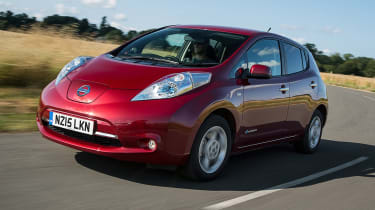
What should I do if I’m buying a used electric car?
Older electric cars are another matter, as many models built in the 2000s and early 2010s lack the sophisticated battery degradation mitigation tech that more contemporary models do.
The most important thing is to check how much of the manufacturer’s original battery warranty is left. It's worth getting the car’s battery status checked at an independent specialist, too. The good news is that – as mentioned above – in some cases it’s possible to change the individual cells rather than the whole pack, which is substantially cheaper.
And if the car's manufacturer battery warranty has expired, you can continue to guard against having to shell out for a battery replacement or refurbishment by purchasing an extended warranty from a third-party supplier.
Most Popular

EV Deal of the Day: budget-friendly Ford Capri for just £234 a month
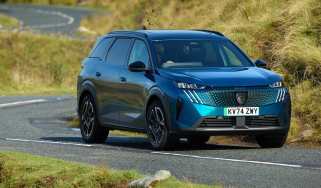
EV Deal of the Day: family-friendly Peugeot E-5008 for £261 per month

